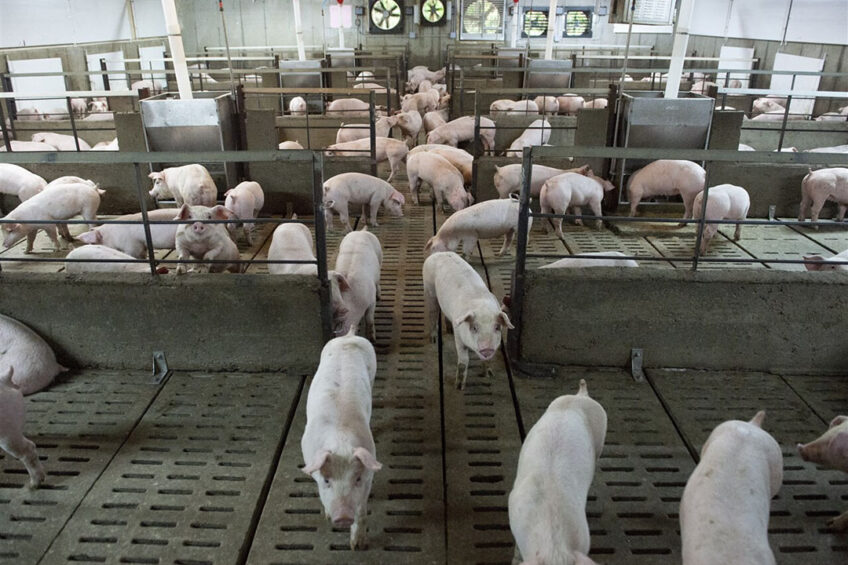What is new in the world of pigs in Canada?

One of the recent developments in Canada’s swine industry is a new training programme starting in December in Manitoba, Canada’s largest pig-producing province. About 14,000 Manitobans depend on the hog sector for their livelihoods, with over 2,500 working directly on farms as technicians and managers.
Assiniboine Community College will offer the new swine production technician course starting next month. It consists of 3 self-directed online courses. Students will learn regulations (mainly the national Code of Practice for the Care and Handling of Pigs), health and safety, record keeping and maintenance of barns and barn systems. They will also learn production practices related to production at various life stages, pig health care and breeding. Students will also build communication and conflict resolution skills.
Traning a new generation of farm owners and staff
In a news release, Tim Hore, Dean of the Russ Edwards School of Agriculture & Environment at Assiniboine, notes that the programme was developed with the Manitoba Pork Council and industry partners. Rick Préjet, Council Chair, said “we are thrilled to have worked…on this programme as we seek to train a new generation of farm owners and staff that will carry on the tradition of being global leaders in animal care.”
Assiniboine will also introduce two additional programs in 2023 for swine industry technicians to advance knowledge and leadership skills.
Awards at Symposium
Pig Progress recently reported on highlights of the 45th annual Saskatchewan Pork Industry Symposium hosted by the provincial association Sask Pork.
2 swine experts were honoured at the event with Saskatchewan Pork Industry Awards of Distinction: researcher Dr. Jennifer Brown with Prairie Swine Centre (PSC) and veterinarian Dr. Josh Lindenbach of Warman Veterinary Services.
Dr. Jennifer Brown was honoured with the Lifetime Achievement Award. She has been the Research Scientist – Ethology at PSC since 2011. Brown earned the respect of the swine industry in Saskatchewan and across Canada in providing leadership for the National Sow Housing Conversion Project, a collaborative effort involving industry and researchers to enable the successful adoption and conversion to group housing. While at PSC, Brown’s areas of research have also included welfare of pigs during transport, development of techniques to measure stress in pigs, and the use of enrichments for sows.
Dr. Murray Pettitt, PSC CEO, noted that that Brown “is passionate about training the next generation of swine professionals…“an accomplished teacher and mentor” and “an excellent researcher.”
Dr. Josh Lindenbach received an Award of Distinction for Exceptional Service for his leadership during a livestock truck rollover this summer. Mark Ferguson, general manager of Sask Pork, praised
Lindenbach’s quick response during the accident. “Despite the danger to himself, he entered the trailer, and managed the assessment, handling and extraction of the animals still on board as well as those outside the trailer.”
Lindenbach has memberships multiple swine associations and has contributed to numerous industry-led projects.
ASF preparedness
Applications are ending this week for organizations to apply for funding under the African Swine Fever (ASF) Industry Preparedness Program (ASFIPP). Pig Progress reported in August the that $ 23.4 million CAD for this programme was allocated as part of a larger ASF funding package.
The ASFIPP program will support projects such as biosecurity assessments and improvements, wild pig management, the retrofit of existing abattoirs, sector analysis and ASF-related research projects. The funding will be distributed over 2 years.
Preventing and preparing for ASF is a shared responsibility in Canada between federal, provincial, and territorial governments and industry.
Border services
The Canada Border Services Agency is Canada’s first line of defence against ASF. Border services officers are trained to intercept smuggled meat at airports, and more sniffer dog teams are being added each year. Bulk imports of meat and more are also examined at Canada’s ports.
Pan-Canadian Action Plan on ASF outlines the strategy on Canada’s prevention and preparedness activities. It includes simulation exercises to ensure a coordinated approach is adopted in the event of an ASF outbreak in Canada.











